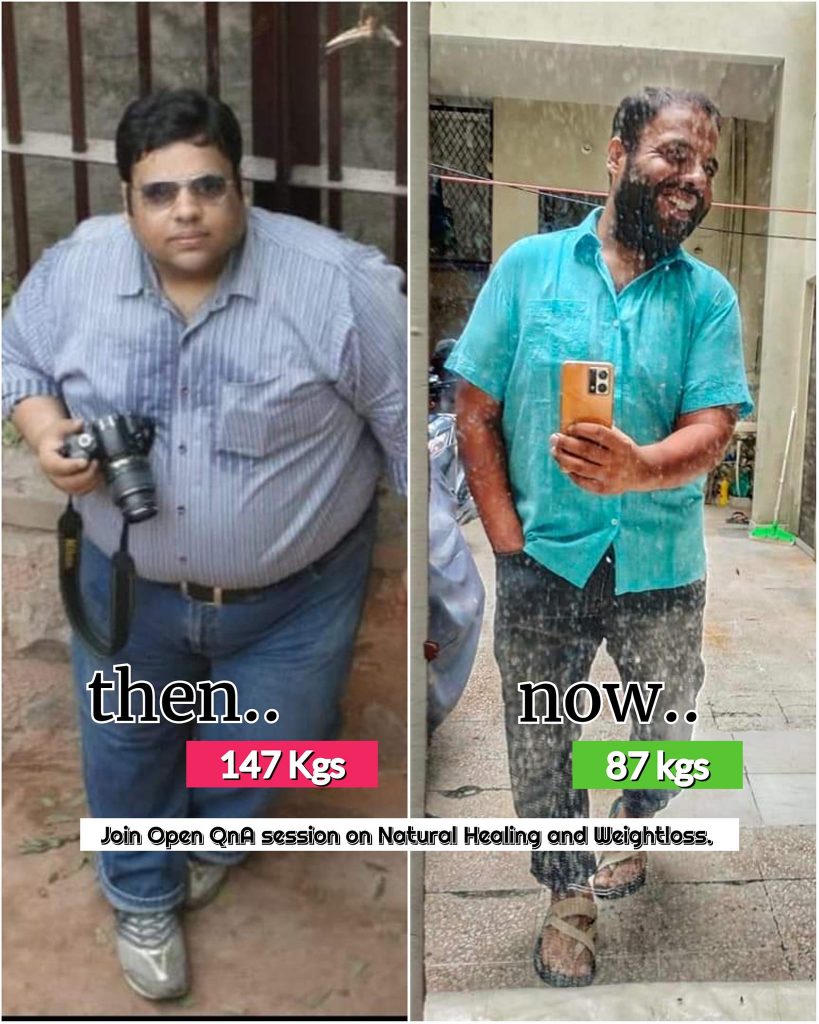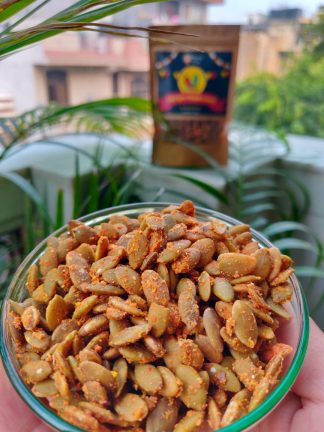
In my personal weight loss endeavors, I realized the importance of setting small personal goals and challenges for oneself. As I recover from post-festive laziness and try to get my body and mind back into a routine, I thought I would throw around a challenge. A challenge inspired by 75 Hard Challenge: Transform Your Mind and Body and 28 Day Wall Pilates Challenge for Free I thought I would put together something that would help people who are struggling with severe obesity and weight issues and need something easier to get them into action, a challenge more focused on bring us #BackOnTrack.
Do weigh yourself at the start of the challenge, and see if there is any movement by the end of it, if you do not see any change – it is time to focus more on what you are eating and putting in your system. But do not worry, by the end of these 28 days you will be able to understand what you eating – a little better.

The Philosophy Behind #BackOnTrack
Our approach is holistic, recognizing that true health encompasses physical, nutritional, and mental well-being. Obesity and weight-related issues are complex, and tackling them requires more than just temporary fixes. That’s why this challenge focuses on education and habit formation, providing you with tools and knowledge to make informed, lasting changes.
Join our Facebook Community for the Challenge here: https://www.facebook.com/groups/28daysweightlosschallenge

Your Daily Routine
Each day of the challenge is an opportunity to grow and improve. Here’s what you’ll be doing:
- Walking: Aim for at least 10,000 steps a day. Break it into two sessions for better manageability, less strain, and allowing for multiple metabolic triggers. Those 10,000 steps are a minimum, push yourself towards the 12-15k range.
All participants are to install the Google Fit App, which is available for both Apple and Android to track their heart points. What are Heart Points – well basically you get 1 heart point for 1 minute of fast-paced activity. When it comes to walking you get 1 heart point if you 100 steps per minute and you get 2 heart points, if the pace is 130 steps per minute. In case you do not use the said app, I have added a small tool at the end of this blog post, to help you get an estimate of your heart points and other walking activity. This is not the same as live tracking, however, will give you a feel of how things work.
Aim for at least 60 points daily to ensure you’re getting enough cardiovascular exercise. The idea is you can be during those 10,000 steps and not strain your heart at all if you are moving at a certain pace, getting at least 60 heart points on the app would ensure you are getting at least 60 minutes of heart activity per minute.
All you have to do it to log in with your Gmail/google account, set the app up, and keep your phone in your pocket while you walk. You can use any other tracker of your choice as well, however also install this app so that we can be all on the same page regarding the heart points. In case you are not installing the app, try and use the tool or calculator at the end of this post and see if helps you improve your routine.
Pro Tip: When you dance – at a party or in private – the app counts the steps, just make sure you are moving your feet fast enough to score those heart points as well. I suggest this as I used it for years and would help us all to be on the same page.
Read my Opinion and understanding of 10,000 steps. - Physical Activity: Alongside walking, choose from daily exercises like Burpees, Surya Namaskar, or Sapatta. These exercises are designed to boost your metabolism, improve flexibility, and build strength. Try and do at least 10 repetitions of each.
As I am myself trying to integrate these, I understand these would be hard to include in the schedule especially if you are 35+ and are used to a lazy lifestyle, however, start from 1 or 2 reps at a time and do it a couple of times in a day. You will get better every day, especially when you start to feel better as well, and you will start to enjoy it.
Just google for these exercises and start practicing the variation you find yourself comfortable with.
The idea is to get started and get comfortable with some floor exercises and stretching and priming our body to take it to the next stage while getting the basics in place. - Learning Sessions: Dedicate 45 minutes each day to learning. You’ll explore various topics, from nutrition basics to the science of exercise, mental health, and much more. Getting away from romancing the book, this reading can be done over your phone or laptop as well, just search for the topics and spend at least 45 minutes learning about them.
We will be sharing a list of topics in subsequent blog posts, which is designed to better educate you about managing your Diet, Nutrition, Macros, GI Impact, Workouts, Training, etc.
Hopefully, after 28 days you will be able to understand what you put on plates for yourself and for the family, helping you better manage what you eat at how you eat. - Maintain a Food Diary or Spreadsheet: Keep track of your food intake, write down what you eat, when you eat, and how much you eat, every time you eat every day.
My understanding as calculating Macros and keeping track is not simple for everyone, however in the challenge, we are already working on educating ourselves on the basics of nutrition, so by maintaining a food journal/Diary/log, you would be able to understand what was your intake at the end of month.

There are different apps for the purpose, however, I have not used any of them personally. I am a wannabe Sherlock Holmes, I make mental palaces – just that they keep falling apart :P.
Learning and Development
Here are some suggested daily topics that align with your goals of improving physical activity, nutrition, and overall wellness. You can search or do your own research on these topics and start learning about them.
Besides that, the posts below would be linked to other posts giving you some details and explaining on what you can learn and read about.

Week 1 of #BackOnTrack Challenge: Establishing a Healthy Foundation
Day 1: Setting Personal Health Goals
Learn how to set realistic and achievable health goals. Understand the importance of SMART goal-setting in your fitness journey.
read more for basic guidance: Setting Personal Health Goals for Fitness Journey
Day 2: The Role of Regular Physical Activity
Discover the diverse benefits of physical activity, not just for weight loss but also for mental health and well-being.
Read more about the importance and Role of Regular Physical Activity: More Than Just Weight Loss
Day 3: Basics of Macronutrients
Delve into the roles of carbs, proteins, and fats. Understand why each is essential and how to balance them in your diet.
Learn more about Basics of Macronutrients: Diet’s Building Blocks
Day 4: Understanding Micronutrients
Explore the world of vitamins and minerals. Learn about their crucial roles in body functions and where to find them in your diet.
To understand more about Micronutrients: Vitamins and Minerals in Your Diet, do visit here.
Day 5: Hydration and Health
Find out why water is vital for your health and how much you should be drinking every day.
Read more about the importance of Hydration and Health: Role of Water in Wellness
Day 6: Introduction to a Balanced Diet
Learn about the importance of balancing carbohydrates, proteins, and fats. Research how each macronutrient contributes to overall health.
To get a basic understanding of a Balanced diet, read Introduction to a Balanced Diet: The Key to Optimal Health
Day 7: Importance of Sleep in Weight Management
Discover the link between sleep and weight. Learn how lack of sleep can affect your weight loss efforts and overall health.
Wonder how sleep is important? Read Importance of Sleep in Weight Management
Here you can also read my advice on Getting started with Body Fast Reduction.
Join our Facebook Community for the Challenge here: https://www.facebook.com/groups/28daysweightlosschallenge

Week 2 of #BackOnTrack Challenge: Deep Dive into Nutrition
Day 8: Reading and Understanding Food Labels
Learn to read labels effectively to make healthier choices. Focus on serving sizes, calories, and nutrient values.
Day 9: Significance of Fiber in Diet
Understand the role of fiber in digestion and overall health. Research high-fiber foods and their benefits.
Day 10: Healthy Fats vs. Unhealthy Fats
Explore the difference between saturated, unsaturated, and trans fats. Learn which fats are heart-healthy.
Day 11: Effects of Sugar on the Body
Investigate how sugar impacts your health, including its role in obesity and diabetes.
Day 12: Planning Nutritious Meals
Learn the basics of meal planning for a balanced diet. Find out how to prepare meals that are nutritious and satisfying.
Day 13: Processed Foods and Health
Understand the impact of processed foods on health. Learn to identify and reduce processed food in your diet.
Day 14: Nutritional Myths and Facts
Demystify common nutritional myths. Use credible sources to understand the facts about diet and health.
Week 3 of #BackOnTrack Challenge: Physical Activity and Well-being
Day 15: Different Types of Exercises
Explore various forms of exercises, including cardio, strength training, and flexibility workouts. Understand how each type benefits your body.
Day 16: Benefits of Walking and Step Count
Discover the health benefits of walking. Learn how tracking your steps can be a simple yet effective fitness strategy.
Day 17: Flexibility and Stretching
Learn about the importance of flexibility exercises and basic stretching routines to improve your range of motion and reduce injury risk.
Day 18: Overcoming Fitness Plateaus
Find strategies to overcome plateaus in your fitness journey. Learn about changing up routines and the importance of challenging your body.
Day 19: Rest and Recovery
Understand why rest days are crucial for physical fitness and how they aid in muscle recovery and prevent burnout.
Day 20: Mental Health and Exercise
Explore the link between physical activity and mental health. Learn how regular exercise can improve mood and reduce symptoms of anxiety and depression.
Day 21: Making Exercise a Habit
Discover tips for integrating exercise into your daily routine and making it a sustainable habit.
Week 4 of #BackOnTrack Challenge: Sustaining Healthy Habits
Day 22: Long-term Health and Fitness Goals
Learn to set and achieve long-term health goals. Understand the importance of consistency and realistic goal-setting for lifelong health.
Day 23: Healthy Eating Outside Home
Discover strategies for making healthy choices when eating out. Learn how to navigate menus and make balanced food choices.
Day 24: Emotional Eating and Management
Explore the concept of emotional eating. Learn techniques to manage emotional triggers and develop healthier eating habits.
Day 25: Advanced Nutrition Concepts
Dive into more complex nutrition topics like superfoods, antioxidants, and the latest dietary trends. Understand their roles in a healthy diet.
Day 26: Reviewing and Adjusting Fitness Plans
Learn how to review and adjust your fitness plans. Understand the importance of adapting your routines to continue progress.
Day 27: Community and Support in Fitness Journey
Explore the role of community and support in maintaining a healthy lifestyle. Learn the benefits of having a support system in your fitness journey.
Day 28: Reflecting on the Challenge and Next Steps
Reflect on your progress and experiences during the challenge. Plan your next steps and how to continue your health journey beyond the 28 days.
Engage with Our Community
Use #BackonTrack and #MasalaMonk hashtags to post on different social media channels to motivate and encourage others to reclaim their life. Share your progress, walking pictures, learnings, and food pictures if you want to of course, or nothing at all.
However would really appreciate it if you could leave a comment when you start the challenge and then maybe another one at the end to share the progress and how was the experience. Feel free to leave a comment if you need any guidance and direction – will try to guide you in the best way I can.
Join our Facebook Community for the Challenge here: https://www.facebook.com/groups/28daysweightlosschallenge

10 FAQs for the #BackOnTrack Challenge
- What is the #BackOnTrack Challenge? The #BackOnTrack Challenge is a 28-day program designed to help individuals with obesity and weight issues kickstart a healthier lifestyle. It combines physical activity, nutrition education, and daily learning to create a holistic approach to wellness.
- How many steps are recommended daily in this challenge? The challenge recommends at least 10,000 steps per day, ideally broken into two sessions to manage strain and maximize metabolic benefits. Participants are encouraged to aim for 12-15k steps for better results.
- What are Heart Points, and why are they important? Heart Points are a measure used in the Google Fit app to quantify the intensity of physical activity. Earning these points, particularly aiming for at least 60 daily, ensures participants engage in sufficient cardiovascular exercise.
- What kind of physical activities does the challenge include? Alongside walking, the challenge incorporates exercises like Burpees, Surya Namaskar, or Sapatta. These are selected to enhance metabolism, flexibility, and overall strength.
- How does the challenge address nutrition and diet? The challenge includes daily learning sessions focused on nutrition basics, understanding macros, the impact of different foods, and developing healthier eating habits.
- Is maintaining a food diary important in this challenge? Yes, keeping a food diary is a crucial part of the challenge. It helps participants track their food intake, understand their eating patterns, and make more informed dietary choices.
- Can beginners participate in the #BackOnTrack Challenge? Absolutely! The challenge is designed for people at various fitness levels, especially those starting their fitness journey. Exercises and activities can be modified to suit individual abilities.
- What if I can’t reach the daily step goal? The goal is to encourage consistent activity, not perfection. If the daily step goal is too high initially, start with what’s manageable and gradually increase your target as your fitness improves.
- How does this challenge help with long-term health? By focusing on habit formation, education, and gradual improvement, the challenge aims to equip participants with the knowledge and practices needed for sustained health and wellness.
- What should participants do after the 28-day challenge? Participants are encouraged to continue the healthy habits developed during the challenge, possibly setting new goals and exploring further fitness and nutrition education.
Maximizing Your Steps: Introducing our FREE Walking Activity Analysis Tool
To transform your walks from mundane to magical, we’ve developed the Walking Activity Analysis Tool. This Calculator is your companion in understanding the nuances of your walking sessions and making every step count towards your health goals.
In an age where digital privacy is paramount, we’ve designed our Walking Activity Analysis Tool with your security and privacy at the forefront. Understanding the intricacies of your walking sessions should not come at the cost of your personal data. That’s why our tool is built on a foundation of simplicity and transparency, utilizing straightforward HTML, JavaScript, and CSS.
No Tracking, No Logging, No Worries: When you use our tool, rest assured that your privacy is intact. We don’t track your activities, store your information, or ask for any login credentials. Your walking session data remains yours and yours alone. There’s no digital footprint of your activities, making this tool a secure choice for managing your walking analytics.
Empowering Your Wellness Journey, On Your Terms: Our tool is designed to give you immediate insights without the need for data retention. Input your session details, receive your analysis, and then the choice is yours on how to proceed. For those keen on tracking progress over time, we suggest two privacy-preserving methods:
- Digital Tracking: Enter your session results into an Excel spreadsheet or Google Sheet. This method allows for easy data manipulation and trend analysis, all within your control.
- Physical Tracking: Embrace the tangibility of a physical notebook or journal. Documenting your progress by hand can be a reflective practice, offering a moment to celebrate achievements and plan future goals.
How It Works
Simply input your steps, walking duration, weight, and height. This calculator would crunch the numbers, offering insights into:
- Distance: See how much you have walked or the distance covered in the session.
- Calories Burned: Understand your energy expenditure to tailor your walking for weight goals.
- Cadence: Learn about your walking pace and its impact on your fitness.
- Heart Points: Get rewarded for your effort based on health guidelines.
This is not the same as live tracking, however, will give you a feel of how things work.
Walking Activity Analysis
Decoding Your Results: A Comprehensive Guide to Walking Analytics
Once you’ve input your data into our Walking Activity Analysis Tool, you’re met with a detailed breakdown of your walking session. Understanding these metrics is key to leveraging your walks for maximum health benefits. Let’s dive into what each result means for you and how you can use this information to elevate your walking routine.
Distance Covered: Measure Your Journey
Why It Matters: The distance you cover on your walks is a direct reflection of your dedication to walking. It’s not just about the steps you take but the miles those steps accumulate over time. Tracking your distance helps set benchmarks and goals, making your walking routine more goal-oriented and measurable.
How to Use This Insight: Set incremental distance goals each week. If you walked 10 kilometers in total last week, aim for 11 this week. Small increases can lead to significant improvements over time, enhancing your endurance and cardiovascular health.
Calories Burned: Fuel Your Weight Management
Why It Matters: This metric offers a glimpse into the energy expenditure of your walks. Understanding how many calories you burn is essential for anyone looking to manage or lose weight. It bridges the gap between physical activity and dietary habits, offering a holistic view of your health regimen.
How to Use This Insight: Pair the calorie data with your dietary intake. If your goal is weight loss, ensure that your daily calorie intake is less than what you burn. Use this metric to adjust your walking intensity or duration to meet your weight goals more effectively.
Cadence: Find Your Rhythm
Why It Matters: Cadence, your steps per minute, is a critical indicator of your walking pace and intensity. Higher cadence rates are linked to increased cardiovascular efficiency and calorie burn. Striving for a cadence of 100 steps per minute or more propels your walking sessions into the realm of moderate-intensity cardiovascular exercise, amplifying their health benefits.
How to Use This Insight: Monitor your cadence and aim to increase it gradually. Incorporate intervals of brisk walking into your routine to improve your average cadence. Listening to upbeat music or using a metronome app can also help maintain a brisk pace.
Heart Points: Quantify Your Effort
Why It Matters: Heart Points are awarded for engaging in moderate to vigorous physical activity, serving as a gamified measure of your effort. Accumulating 150 Heart Points weekly aligns with the WHO’s recommendations for adult physical activity, signaling a strong contribution to your cardiovascular health.
How to Use This Insight: Use Heart Points as a weekly goal to motivate your walking sessions. If you find yourself falling short, consider adding one or two more walks into your week or increasing the intensity of your current walks. Celebrate when you meet or exceed your target, and set higher goals as your fitness improves.
Leveraging Insights for Enhanced Well-being
With a deeper understanding of what each metric signifies, you’re well-equipped to tailor your walking routine for optimal health benefits. Remember, walking is more than just a physical activity; it’s a step towards better health, a moment of mental clarity, and an opportunity to connect with your surroundings. Use these insights to walk smarter, not harder, and watch as your health transforms.
Embark on your journey with our Walking Activity Analysis Tool today, and let each step take you closer to your wellness goals. Armed with data and insights, there’s no limit to the milestones you can achieve on your path to better health.













